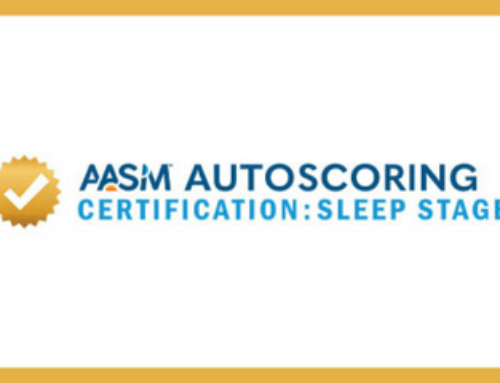FOR IMMEDIATE RELEASE
CONTACT: Thomas Heffron, 630-737-9700, ext. 9327 – theffron@aasm.org
DARIEN, IL – July 19, 2012 – A segment on the newsmagazine show Nightline reported people taking the prescription medication Provigil as a “smart drug,” to maintain wakefulness and promote cognitive enhancement. The American Academy of Sleep Medicine (AASM) emphasizes that Provigil should be used only under the supervision of a doctor for the treatment of excessive sleepiness caused by narcolepsy, obstructive sleep apnea or shift work disorder. Provigil is a schedule IV controlled substance that carries risk for abuse and dependence.
Provigil, which comprises the drug modafinil, is a stimulant that originally received FDA approval in 1998. A variation of the medication, marketed as Nuvigil and composed of armodafinil, was approved by the FDA in 2007.
Both drugs are approved only for the treatment of three sleep disorders that compromise daytime alertness. Provigil should not be prescribed off-label or purchased independently by consumers for cognitive or performance enhancement. There is little evidence to support the use of Provigil or any other drug to improve learning and memory, and no medication provides such benefits without side effects.
Potential Provigil side effects include headache, upset stomach and dizziness. Although much less common, more serious side effects may occur, including severe rash or allergic reaction affecting the liver or blood cells.
It is important for patients to take Provigil under the supervision of a licensed physician who knows their medical history and has record of other medications that they are taking.
According to the AASM, getting a sufficient amount of nightly sleep is the safest and healthiest way to promote optimal mental and physical performance during the day. Although individual sleep needs vary, most adults need about seven to eight hours of nightly sleep to feel alert and well-rested during the day.
About Provigil and Sleep Disorders
The FDA has approved Provigil use for the treatment of excessive daytime sleepiness related to narcolepsy, shift work disorder and obstructive sleep apnea. Narcolepsy is a form of hypersomnia that commonly involves the sudden onset of irresistible sleep, and shift work sleep disorder is a circadian rhythm sleep disorder that occurs due to a work schedule that takes place during the normal sleep period.
Obstructive sleep apnea is a sleep-related breathing disorder that involves repeated breathing pauses during sleep; these disruptions impair sleep quality and promote daytime sleepiness. The primary treatment for OSA is continuous positive airway pressure (CPAP) therapy, which restores normal breathing during sleep. Provigil is not a replacement for CPAP or any other treatment prescribed for OSA.
About the AASM
The AASM is a professional membership society that is the leader in setting standards and promoting excellence in sleep medicine health care, education and research (www.aasm.org). Help for people who have a sleep problem is available at more than 2,400 AASM-accredited sleep disorders centers across the U.S. (www.sleepcentral.org)








